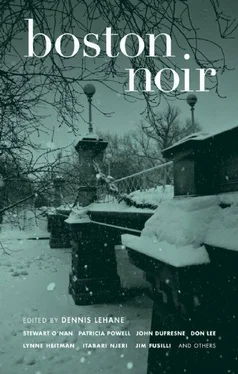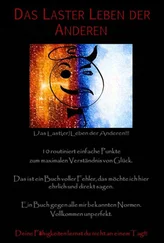“Last night. He’s still living in his mom’s place on I Street.” Mr. Markey stared out the window at the howling storm. “He said you took him to the movies.”
“I took many boys to many movies.”
“You bought popcorn, buttered popcorn. ‘Butted,’ he said. ‘Hut butted pupcon,’ and you held the box on your lap, and when he reached in for a handful, your fingers touched, and you let the touch linger. He said you licked the ‘buttah’ off his fingers-”
“He’s lying.”
“That could be. Or it could be false memories. That happens. But let me ask you this. Has any priest ever confessed abuse to you?”
“If any had, I wouldn’t tell you.”
“What would you do if Father X told you he boinked all the altos in the boys’ choir?”
“I’d grant him absolution if he were contrite and determined not to sin again.”
“That’s it?”
“If thy brother trespass against thee, rebuke him; and if he repent, forgive him.”
“Forgive, and ye shall be forgiven.”
“I might also suggest counseling, therapy, prayer, and avoiding the near occasion to sin.”
Mr. Markey picks up a copy of The Pilot off the coffee table and reads. “Cardinal Law Appointed Archpriest at Vatican Basilica.” He shakes his head, rolls the paper and slaps it against his leg. “Our ex-cardinal here once accused a six-year-old boy of negligence and culpability in his own repeated rapes. Under oath!” He drops the paper onto the coffee table. “I can’t shake this paranoid fantasy I have of a fellowship of child-molesting priests all going to confession to one another, forgiving one another, and moving on as if nothing ever happened.”
“One would need sincere contrition.”
“They confess; they are contrite; they are forgiven.” Mr. Markey checks his watch. “I’m going to need to speak with the monsignor alone. Maybe you should visit the church and pray for strength and guidance. By the time we see you again, everything should be taken care of.” Mr. Markey puts his hand on the back of Father Tom’s neck and squeezes. He pulls Father Tom’s head toward his own until their foreheads touch. “Trust me.”
Father Tom feels a hot current of pain buzz through his skull like his head’s attached to a live electrical wire, but he’s rigid, shaken, and speechless, and he can’t pull away.
Father Tom lights a votive candle and prays for courage and understanding. He’s always savored his time alone in a dark church where he feels hidden away. As a boy he’d arrive at 5 or 6 every Saturday morning, sit beneath the stained-glass window of the Last Supper, and pray the rosary. He wanted God to know that he was no Sunday Catholic; he was a boy God could count on, a soldier of Christ. Father Tom genuflects, walks to the pew beneath the Last Supper, and sits. The world seems far away. He remembers asking God to make him either dead or invisible. Dead he’d be with Jesus and Gerard; invisible he’d be alone.
He looks up at the window. Jesus has a mole under His right eye. The beloved John has his head on his arm and his arm on the table. His eyes are shut, and he’s smiling like he’s tasted the honeyed love of his Lord. The apostle Thomas stands behind the others, and all you see is his single wide eye peering above the heads at Jesus, the way Gerard’s single eye peered above the hem of the blanket on the couch when he ran his foot along Tom’s leg. “Quit it, Gerard, or I’ll call Mom!”
When Gerard lay in his coma at the hospital, the nuns from St. Cormac’s took up residence in his room and kept a twenty-four-hour vigil. They fussed and prayed over him. Sister Brigid saw the Angel Gabriel at the foot of Gerard’s bed, weeping. Gerard was a saint, the nuns were certain. The ones He loves best, God takes first. When Gerard died in his mother’s arms, the nuns hung framed photos of Gerard in every classroom alongside the president and the Pope. Then the stories of Gerard’s sanctity started, how he had healed a starling’s broken wing with just a touch, how he could be both in church and in school simultaneously, how he could smell the presence of sin, how the statue of the Virgin Mary on the altar had wept at the moment of Gerard’s passing.
What Father Tom will admit to if they ask-because it’s pretty normal anyway-is that there are two selves in him. There’s the self you see, the Father Tom he wants to be, the he who is pastoral, devout, compassionate, prudent…and what else? Vulnerable? Yes. And washed in the blood of the Lamb. And this is the bona fide Father Tom Mulcahy. And then there is the sinner, the carnal scoundrel who is impulsive, selfish, devious, and insatiable, a wolf inside who knows the secret of Father Tom’s loneliness and hunger, and who would, if he could, twist Father Tom’s selfless love and earnest affection into something loathsome and viperous. Father Tom will admit, this is to say, that he is indeed human and flawed, no better than they. And he’ll explain to them his obsessive vigilance and tenacity in the battle with his pernicious other, and how he has always vanquished the interloping demon and has done so at a staggering price.
One day after sledding and making snow angels, he and Gerard built a snowman in the small backyard, and his brother took the carrot for the nose and stuck it down there and made it a weenie and told Tom to get down on his knees and eat it. He wouldn’t, so Gerard pushed his face into the snow and sat on his head until Tom couldn’t breathe, and he was terrified and his mother wasn’t here to save him.
He hears a noise, like someone dropped a hymnal, but when he looks around, he sees no one. He says, “Mr. O’Toole?” and hears his voice echo. He listens to the howling wind and to his beating heart. And then he hears his sobbing mother say, Why Gerard, dear God? They are in the hospital and Tom is in a corner, peering past the nuns at his mother, prostrate on his dead brother’s bed. Why the beautiful one? she says.
Father Tom prays for wisdom, guidance, and deliverance. He’ll do God’s will, and if God wants him to suffer unjustly, then so be it. But he’s done with waiting. He’ll speak with this Judas, this traducer, this Lionel Ferry, and give him a chance to confess his lies and to accept God’s grace into his heart.
When Father Tom enters the sacristy, he’s surprised by a man in a cumbersome green snow suit standing in a puddle of melting snow. “Mr. O’Toole?” Father Tom says. A black balaclava covers most of the man’s face. His mustache is white with ice, and his glasses are opaque with fog. This man, who is apparently not Davy O’Toole, who is, Father Tom realizes, several inches shorter than the custodian, has a snowball in his left hand, which he lobs to Father Tom. When Father Tom catches the ball against his chest, the man swings what must be a club and strikes him on the side of his face, and he drops to the floor. His skull is shattered, he’s certain, but it doesn’t hurt. He hears the squeak of footsteps, hears the church door open, squeal, and slam shut. After several minutes, he opens the one eye that will, touches his face, and feels the drilling pain. His left ear is ringing.
Father Tom holds a handful of numbing snow over his swollen eye, presses the buzzer, and waits. He kicks aside some drifted snow and forces the storm door open. He knocks on the inside front door twice and then shave-and-a-haircut . A voice says, “Come in if you’re beautiful.” Father Tom drops the snow from his eye, shakes off as much snow as he can from his coat and slacks, steps inside the unlit parlor, and lets his eye adjust. “Hello!” He can see his breath. He can make out a sofa and a sleeping bag spread on the floor. He hears, “Be right with you. Gotta drain the lizard.”
Читать дальше







![Деннис Лихэйн - Boston Noir [редактор Деннис Лихэйн]](/books/304187/dennis-lihejn-boston-noir-redaktor-dennis-lihejn-thumb.webp)




